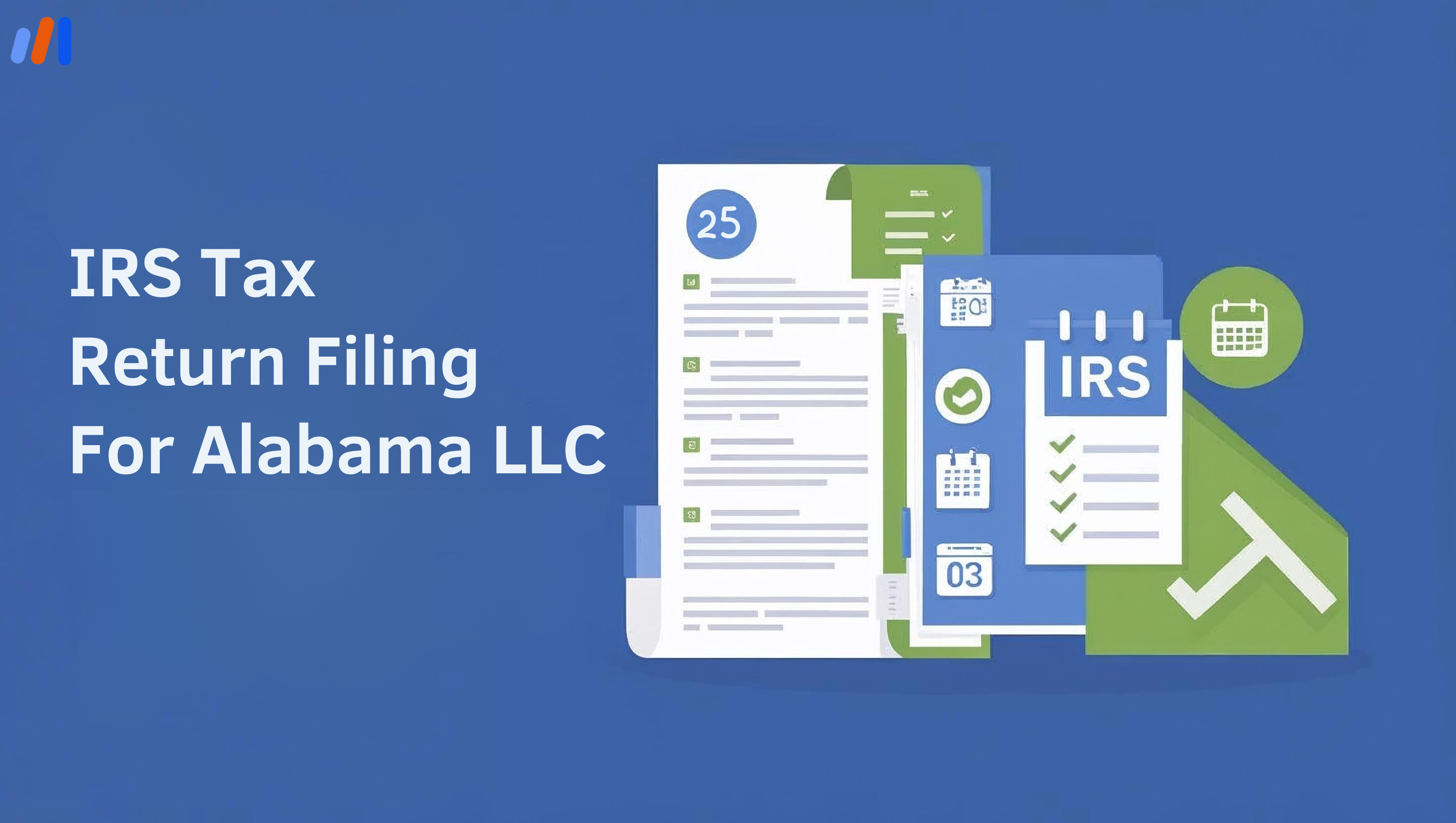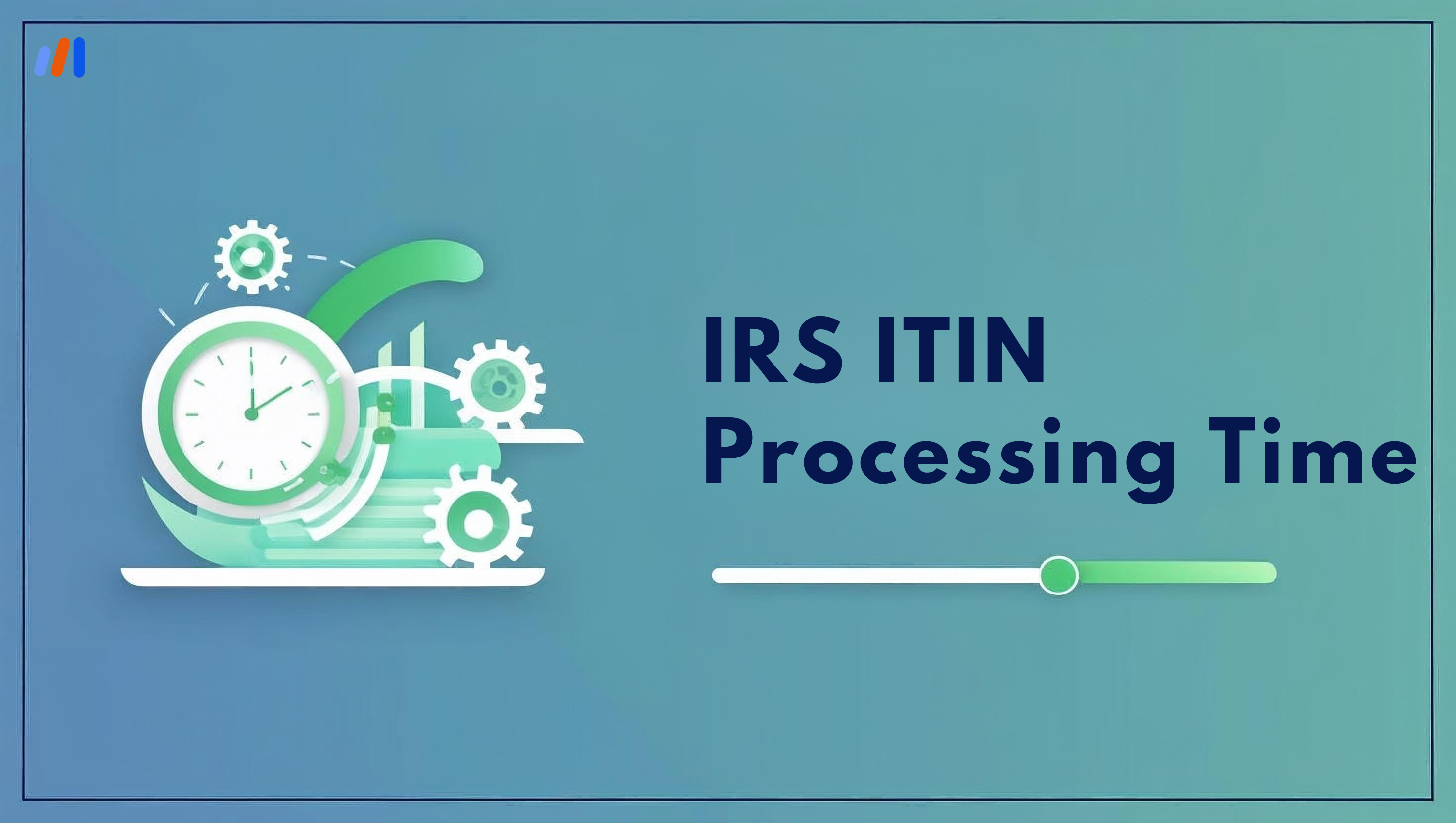It is important to know the IRS tax return filing requirements if you own a Limited Liability Company (LLC) in Alabama to stay compliant and avoid penalties.
Based on its tax classification, the IRS will put an LLC into one of the following brackets: single-member, multi-member, or if it has opted to be taxed as a corporation. Each comes with its own set of procedures.
In this article, we will discuss the process of IRS tax return filing for Alabama LLC, focusing on classifying the taxes, reporting the taxes, deadlines, and other relevant details.
How Does the IRS Classify Your Alabama LLC?
The IRS does not have an official classification for LLCs in existence as a separate tax category. Instead, they assign tax LLC classification to either the number of members or an election for tax made with IRS Form 8832 or 2553:
Single-Member LLC: Considered a disregarded entity by default, meaning the income and expenses of the LLC will pass through income onto the owner and be reported on the owner’s tax return through Schedule C (Form 1040).
As it stands, single-member LLCs have the option of electing to be taxed as a corporation.
Multi-Member LLC: A multi-member LLC is, by default, treated as a partnership. The LLC does not pay income tax, but must file an information return, Form 1065. The members get a Schedule K-1 each, reporting their share of income, losses, and deductions.
LLC Electing Corporate Taxation: An LLC can elect to be taxed as a C-Corporation or an S-Corporation to optimize tax planning. A C-Corporation will file a Form 1120 and pay corporate taxes. An S-Corporation will file Form 1120-S and will pass income to the shareholders using a Schedule K-1.
Selecting the appropriate type may significantly affect how you report your business income, self-employment taxes, and owner distributions.
Federal Tax Filing Requirements for Alabama LLCs
For an Alabama LLC in a certain structure, you need to observe particular federal IRS guidelines:
Single-Member LLC:
- All business income and deductions should be reported on Schedule C attached to their individual income tax return which is Form 1040.
- Might also want to file a Schedule SE to pay self-employment taxes on net business income.
- If you have staff, you must also submit an employment tax form.
Multi-Member LLC:
- File annually Form 1065 (U.S. Return of Partnership Income).
- Prepare a Schedule K-1 for all the partners detailing their specific share of the profits, losses, and credits.
- This is reported as part of their personal income tax return.
LLC taxed as S Corp:
- Has to submit Form 1120-S each year.
- Every single member gets a Schedule K-1, and the amount is passed to their tax forms.
- In addition to the above, S corporations will also need to manage payroll for owner-employees and complete employment tax return forms.
LLC Taxed as C Corp:
- Submit Form 1120 along with paying taxes on corporate income.
- If the profits are paid out as dividends, members will be subject to additional taxation, which could be double taxation.
- Any Alabama LLC with employees or that has multiple members is required by law to get an Employer Identification Number (EIN) from the IRS.
Important IRS Filing Deadlines
Form 1065 (for Partnerships) and Form 1120-S (for S-Corps) are to be submitted by the 17th of March 2025.
Form 1040 for individuals, including those filing under Schedule C, along with Form 1120 for C-Corporations, is to be submitted by the 15th of April 2025.
If the original due date cannot be met, requesting an extension is always an option:
- Complete Form 7004 to request an extension for Forms 1120, 1120-S, or 1065.
- Complete Form 4868 for individual returns, including those with Schedule C.
It’s important to keep in mind that extensions pertain only to filing, not payments. To avoid penalties, estimated taxes always have to be paid by the original deadline.
Penalties for Not Filing
Not filing your taxes with the IRS or not paying due taxes comes with its own set of problems that are costly and risky to deal with. Some common penalties include:
- Failure to File Penalty of 5% every month for up to 25% of unpaid taxes if the return is late.
- Failure to pay the Penalty of 0.5% of the unpaid taxes per month, up to 25%.
- Interest on Unpaid taxes, which are compounded daily and will inflate the total balance due.
- Loss of Good Standing, allowing the IRS to report a lack of non-compliance, which negatively affects the LLC’s ability to receive funding or government contracts.
- State-Level Penalties, where the Alabama Department of Revenue has the right to impose penalties for Business Privilege Tax filings.
Keeping your business’s reputation in good standing comes from timely and accurate submission of payments.
Alabama LLC Tax Obligations
Your LLC in Alabama will have to file the following forms for your employees and corporate contractors if you fall into any of the aforementioned categories. You will also need to pay Medicare and Social Security taxes.
Form 941: Used for the quarterly reporting of income taxes withheld from an employee’s wages, alongside Social Security payments and Medicare taxes.
Form 940: Federal unemployment tax (FUTA) tax reporting and payment on an annual basis.
Form 1099- NEC: This must be filed if payment was made to a contractor or freelancer amounting to $600 or more.
Form 5472: This is necessary in the case where the LLC is foreign-owned at 25% or more and has foreign owners and affiliate reportable transactions. This must accompany the 1120 form even if the LLC otherwise qualifies as a disregarded entity.
If you maintain accurate records throughout the year, it will become much easier to file these forms correctly and on time.
Requirements for Filing Taxes in Alabama
In addition to the taxes required by the IRS, Alabama LLCs have state-specific tax requirements, including:
Business Privilege Tax (BPT): Each LLC that conducts business in Alabama is required to submit an initial Business Privilege Tax return within 2.5 months of formation. An Alabama BPT annual return is required each year on the third week of April. The minimum tax is set at $100, but it may increase depending on net worth and other factors.
Alabama State Income Tax: Members of an LLC are liable to pay state income tax corresponding to the share of the LLC’s income distributed to them. In Alabama, the income tax rate for individuals is between 2% and 5% based on the level of taxable income. LLCs classified as corporations are required to submit a corporate income tax return to the Alabama Department of Revenue (ADOR).
Depending on your type of business, additional taxes like a sales tax, use tax, or industry specific tax might also be applicable.
Ensure Compliance with Tax Record Keeping
Proper record keeping helps in filing the necessary taxes while avoiding penalties. It enables you to track income, maximize deductions claimed, and withstand audit examinations. Alabama LLC owners need to:
Separate business and personal finances: Open a dedicated business bank account and use it exclusively for business transactions.
Track all income and expenses: Receipts, invoices, and statements must be kept digitally or manually.
Reconcile accounts routinely: Monthly, your records should align with your bank and credit card statements.
Leverage accounting software: EasyBooks, QuickBooks, Xero, and FreshBooks are some tools that could automate efforts and minimize errors.
Engage a professional bookkeeper: Managing your books can become a full-time job. A professional will keep you compliant while allowing you to put focus on growing your business.
Need Help Filing Your IRS Return as an Alabama LLC Owner?
At EasyFiling, we appreciate that every Alabama LLC has its distinct perks and requirements. Whether you are a single-member LLC reporting on Schedule C or a multi-member LLC preparing for Form 1065, we have incorporated resources crafted just for you.
Our experts also help with S-Corp and C-Corp filings, payroll tax forms, EIN registration, etc.
With our support, you can:
- Efficiently manage IRS and Alabama tax deadlines.
- Avoid filing errors.
- Optimize savings and deductions.
- Sustain meticulous financial documents that are ready for audits.
To begin filing your tax return for compliance with an Alabama LLC, reach out to EasyFiling today!
Final Thoughts
With the right tools, resources, and support, federal and state tax return filings for your Alabama LLC do not have to seem insurmountable.
Compliant businesses are less likely to face penalties, making them more efficient in the long run, while supporting success years down the road.
Know your classification, appropriately file IRS and Alabama state documents, and seek professional aid if it all becomes a bit too much.
Frequently Asked Questions (FAQs)
What is the minimum tax an Ohio LLC must pay?
The minimum Alabama Business Privilege Tax (BPT) is $100 if paid on an annual basis.
Do I need to file taxes if my Alabama LLC made no income?
Yes, you have a federal and state return due, which must be submitted even if your LLC didn’t have any income.
Can I file my Alabama LLC taxes myself?
While you can do it yourself, using a tax professional helps ensure all legal requirements are met and that all allowances are claimed.
What’s the penalty for filing late?
The IRS penalizes taxpayers by charging up to 25% of the unpaid tax amount if they file afterward the deadline. There’s a possibility Alabama may impose state-based penalties as well.
What forms do foreign-owned LLCs need to file?
If your Alabama LLC is owned 25% or more by a foreign entity/individual, you are required to submit Form 5472 along with Form 1120, even if it is a disregarded entity.
File Your LLC Today
25$ off with a coupon
Lock in EasyFiling's transparent rates and get lifetime compliance support at no extra cost.
Get Started Now








